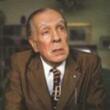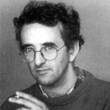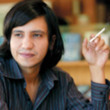How to travel without seeing : dispatches from the new Latin America
(Book)
918 NEUMA 2016
1 available
Copies
| Location | Call Number | Status |
|---|---|---|
| Columbia Pike - Adult Nonfiction | 918 NEUMA 2016 | Available |
Description
A kaleidoscopic, fast-paced tour of Latin America from one of the Spanish-speaking world’s most outstanding writers.Lamenting not having more time to get to know each of the nineteen countries he visits after winning the prestigious Premio Alfaguara, Andrés Neuman begins to suspect that world travel consists mostly of “not seeing.” But then he realizes that the fleeting nature of his trip provides him with a unique opportunity: touring and comparing every country of Latin America in a single stroke. Neuman writes on the move, generating a kinetic work that is at once puckish and poetic, aphoristic and brimming with curiosity. Even so-called non-places—airports, hotels, taxis—are turned into powerful symbols full of meaning. A dual Argentine-Spanish citizen, he incisively explores cultural identity and nationality, immigration and globalization, history and language, and turbulent current events. Above all, Neuman investigates the artistic lifeblood of Latin America, tackling with gusto not only literary heavyweights such as Bolaño, Vargas Llosa, Lorca, and Galeano, but also an emerging generation of authors and filmmakers whose impact is now making ripples worldwide.Eye-opening and charmingly offbeat, How to Travel without Seeing: Dispatches from the New Latin America is essential reading for anyone interested in the past, present, and future of the Americas.
More Details
Notes
Table of Contents
Similar Titles From NoveList
Similar Authors From NoveList
Published Reviews
Booklist Review
For his novel, Traveler of the Century (2009), Neuman received the prestigious Premio Alfaguara, awarded to outstanding works of Spanish-language literature. The prize includes a public-speaking tour, and Neuman took the opportunity to compose a travelogue that is anything but ordinary, combining wry observations, deadpan aphorisms, and literary commentary. From Asunción to Panama, Neuman bounces all over South and Central America, recording amusing moments, as when his Microsoft Word autocorrects Macri, the name of a popular Argentine politician, to macho, and cataloging the writers he reads along the way, including Borges and Bolaño but also lesser-known, contemporary upstarts, like Pola Oloixarac, Mónica Velásquez, and Daniel Alarcón. The one glaring omission from his list of destinations is Honduras, which had been undergoing political upheaval at the time. Neuman weaves the story of this strife into the background of other entries, recording similar unrest and uncertainty throughout Latin America. The hopscotch narrative, unique insights, and unapologetic bibliophilia make this book perfect for travelers as well as readers bound to home for the time being, looking for an escape.--Báez, Diego Copyright 2016 Booklist
Publisher's Weekly Review
In this series of easily digestible travelogue entries, Neuman (The Things We Don't Do) reflects on various Latin American cities and the way we travel now. As part of his book tour in 2009, Neuman briefly visited 17 cities in Central and South America (and one in the U.S., Miami). The brief visits meant that he could not see everything, and what he saw was only in passing. So, rather offering than a traditional travelogue, Neuman presents bite-size, on-the-go reflections on everything including politics, films, other writers, and the vagaries of customs declaration forms. In Montevideo, Neuman arrives during the festivities celebrating the centenary of the writer Juan Carlos Onetti. He hilariously describes the environment of his hotel in Caracas as "oil-rich Stanley Kubrick." Because it takes place mostly in 2009, some of the events he describes, such as the swine flu outbreak and the death of Michael Jackson, seem oddly dated. As he travels, he reflects on Roberto Bolaño's legacy throughout the literary world. "Miami seems irreversibly ugly," he writes, "until one lands at night among the lights." As a practical guide to Asunción, La Paz, Mexico City, San Salvador, Santiago, Tegulcigalpa, and other places, Neuman's book offers an untraditional but valuable perspective on globalization and the character of nations. (Sept.) © Copyright PWxyz, LLC. All rights reserved.
Library Journal Review
While on a 2009 book promotion tour through Latin America, Argentina-born novelist and poet Neuman kept a separate travel journal on his impressions of the 19 (mostly) capital cities of Central and South America during his brief visits there. His impressions are mostly cryptic statements and smatterings of esoteric poetry or prose. He does actually see things (more in Central than in South America), and when he does it is insightful. It would be easy to dismiss this somewhat odd book as the product of a literary smartypants who mistakes quips for actual content. But when the author discards the "not seeing" schtick and begins experiencing these historic places, the narrative picks up. For example, in the first part of his tour, when technically nothing happens, you're tempted to keep reading, to attempt to understand heady literary references such as: "To buy a head of lettuce has become for me an act of historical representation." And that is one of the more comprehendible ones. VERDICT As literature, this work has legs; as travel writing, it's stuck in no-man's land.-Lee Arnold, Historical Soc. of Pennsylvania, Philadelphia © Copyright 2016. Library Journals LLC, a wholly owned subsidiary of Media Source, Inc. No redistribution permitted.
Booklist Reviews
For his novel, Traveler of the Century (2009), Neuman received the prestigious Premio Alfaguara, awarded to outstanding works of Spanish-language literature. The prize includes a public-speaking tour, and Neuman took the opportunity to compose a travelogue that is anything but ordinary, combining wry observations, deadpan aphorisms, and literary commentary. From Asunción to Panama, Neuman bounces all over South and Central America, recording amusing moments, as when his Microsoft Word autocorrects "Macri," the name of a popular Argentine politician, to "macho," and cataloging the writers he reads along the way, including Borges and Bolaño but also lesser-known, contemporary upstarts, like Pola Oloixarac, Mónica Velásquez, and Daniel Alarcón. The one glaring omission from his list of destinations is Honduras, which had been undergoing political upheaval at the time. Neuman weaves the story of this strife into the background of other entries, recording similar unrest and uncertainty throughout Latin America. The hopscotch narrative, unique insights, and unapologetic bibliophilia make this book perfect for travelers as well as readers bound to home for the time being, looking for an escape. Copyright 2016 Booklist Reviews.
Library Journal Reviews
While on a 2009 book promotion tour through Latin America, Argentina-born novelist and poet Neuman kept a separate travel journal on his impressions of the 19 (mostly) capital cities of Central and South America during his brief visits there. His impressions are mostly cryptic statements and smatterings of esoteric poetry or prose. He does actually see things (more in Central than in South America), and when he does it is insightful. It would be easy to dismiss this somewhat odd book as the product of a literary smartypants who mistakes quips for actual content. But when the author discards the "not seeing" schtick and begins experiencing these historic places, the narrative picks up. For example, in the first part of his tour, when technically nothing happens, you're tempted to keep reading, to attempt to understand heady literary references such as: "To buy a head of lettuce has become for me an act of historical representation." And that is one of the more comprehendible ones. VERDICT As literature, this work has legs; as travel writing, it's stuck in no-man's land.—Lee Arnold, Historical Soc. of Pennsylvania, Philadelphia. Copyright 2016 Library Journal.
Publishers Weekly Reviews
In this series of easily digestible travelogue entries, Neuman (The Things We Don't Do) reflects on various Latin American cities and the way we travel now. As part of his book tour in 2009, Neuman briefly visited 17 cities in Central and South America (and one in the U.S., Miami). The brief visits meant that he could not see everything, and what he saw was only in passing. So, rather offering than a traditional travelogue, Neuman presents bite-size, on-the-go reflections on everything including politics, films, other writers, and the vagaries of customs declaration forms. In Montevideo, Neuman arrives during the festivities celebrating the centenary of the writer Juan Carlos Onetti. He hilariously describes the environment of his hotel in Caracas as "oil-rich Stanley Kubrick." Because it takes place mostly in 2009, some of the events he describes, such as the swine flu outbreak and the death of Michael Jackson, seem oddly dated. As he travels, he reflects on Roberto Bolaño's legacy throughout the literary world. "Miami seems irreversibly ugly," he writes, "until one lands at night among the lights." As a practical guide to Asunción, La Paz, Mexico City, San Salvador, Santiago, Tegulcigalpa, and other places, Neuman's book offers an untraditional but valuable perspective on globalization and the character of nations. (Sept.)
[Page ]. Copyright 2016 PWxyz LLCReviews from GoodReads
Citations
Neuman, A., & Lawrence, J. (2016). How to travel without seeing: dispatches from the new Latin America (First Restless Books paperback edition.). Restless Books.
Chicago / Turabian - Author Date Citation, 17th Edition (style guide)Neuman, Andrés, 1977- and Jeffrey, Lawrence. 2016. How to Travel Without Seeing: Dispatches From the New Latin America. Brooklyn, NY: Restless Books.
Chicago / Turabian - Humanities (Notes and Bibliography) Citation, 17th Edition (style guide)Neuman, Andrés, 1977- and Jeffrey, Lawrence. How to Travel Without Seeing: Dispatches From the New Latin America Brooklyn, NY: Restless Books, 2016.
Harvard Citation (style guide)Neuman, A. and Lawrence, J. (2016). How to travel without seeing: dispatches from the new latin america. First Restless Books paperback edn. Brooklyn, NY: Restless Books.
MLA Citation, 9th Edition (style guide)Neuman, Andrés, and Jeffrey Lawrence. How to Travel Without Seeing: Dispatches From the New Latin America First Restless Books paperback edition., Restless Books, 2016.

































